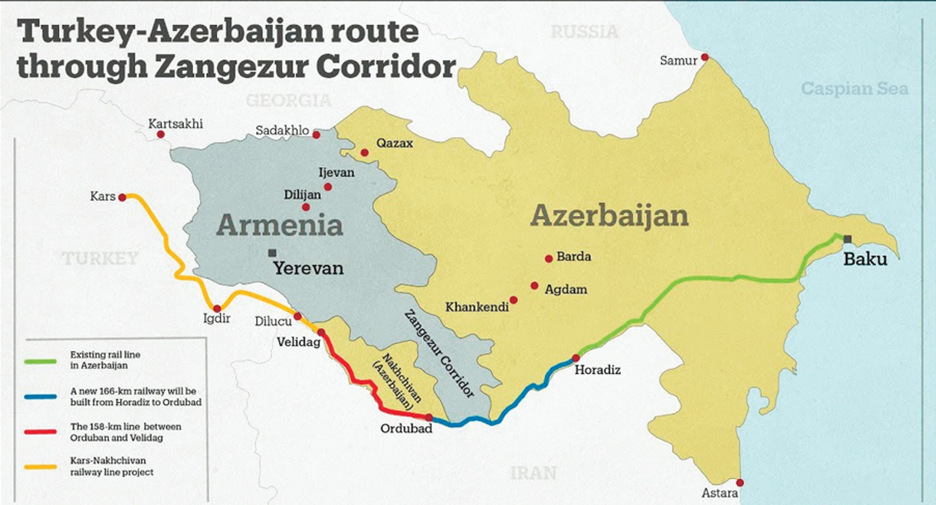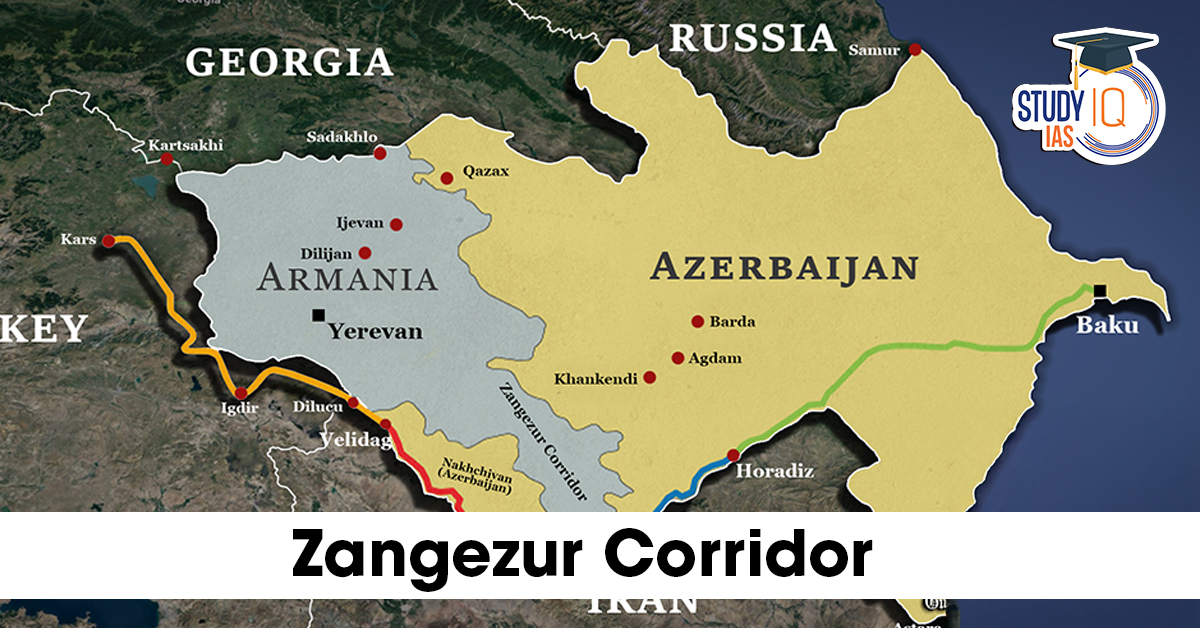Table of Contents
Context: Armenia raised concerns in May 2025 over the proposed Zangezur Corridor, backed by Azerbaijan, Turkey, and Pakistan, fearing threats to its sovereignty and regional balance.
Zangezur Corridor
Geographical Context
- The Zangezur Corridor is a proposed transport route intended to connect mainland Azerbaijan with its exclave, the Nakhchivan Autonomous Republic, by passing through Armenia’s Syunik Province.
- The corridor would traverse Armenia’s southern Syunik Province, linking Azerbaijan to Nakhchivan.
- Length: Approximately 43 kilometres.
Zangezur Corridor Map
Here you can understand the Zangezur Corridor Map:

Historical Background
- During Soviet times, transport links existed between Azerbaijan and Nakhchivan through Armenian territory.
- These links were disrupted due to conflicts, notably the Nagorno-Karabakh conflict, leading to blockades and severed connections.
Significance
- Economic: The corridor aims to enhance regional trade by providing a direct route between Azerbaijan and Turkey, potentially boosting economic activities in underdeveloped areas of Azerbaijan, Armenia, and Turkey.
- Geopolitical: It could serve as a strategic link connecting Turkey to the Turkic nations of Central Asia, aligning with pan-Turkic aspirations.
Stakeholders’ Positions
- Azerbaijan & Turkey: Strong proponents, viewing it as a means to strengthen regional connectivity and economic ties.
- Armenia: Expresses concerns over sovereignty and territorial integrity, wary of potential geopolitical shifts.
- Iran: Opposes the corridor, fearing it may alter regional dynamics and reduce its influence over transit routes.
- Russia: Supports the corridor as part of broader regional integration efforts, but faces criticism from Iran.
Recent Developments
- 2020 Ceasefire Agreement: Post the Second Nagorno-Karabakh War, the ceasefire agreement included provisions to unblock regional transport links, indirectly referencing the corridor.
- Ongoing Negotiations: Discussions continue, with disagreements over the corridor’s status and operational control.
India’s Concerns
- India supports Armenia, which sees the corridor as a threat to its territorial integrity.
- The corridor strengthens Turkey-Azerbaijan-Pakistan ties, potentially isolating India.
- It may undermine India’s INSTC and benefit China’s BRI.
- India shares Iran’s concern, as the corridor bypasses traditional Iran-Armenia trade routes.
- Risks escalating conflict in the South Caucasus, affecting India’s connectivity and strategic interests.


 Geological Heritage Sites of India: Sign...
Geological Heritage Sites of India: Sign...
 Places in News for UPSC 2026 for Prelims...
Places in News for UPSC 2026 for Prelims...
 Lake Natron: Location, Features, Wildlif...
Lake Natron: Location, Features, Wildlif...

























